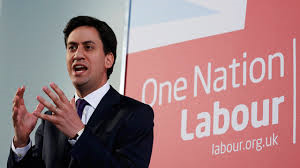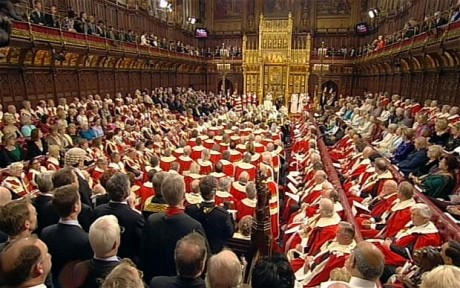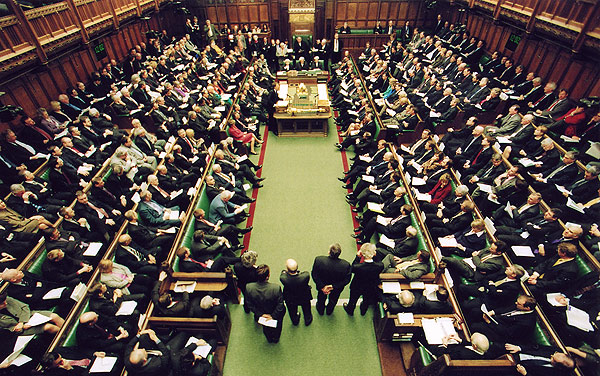
DevoMix: localism and the devolution debate
Considering a wide range of media reports and commentaries on the UK’s ongoing devolution debate – do the solutions politicians seem to be offering genuinely address the issues as seen by local people?
In recent weeks, the media has been awash with articles and reports about proposed new ways of governing different parts of the UK. Clearly, the Scottish referendum has awoken a sleeping giant – something that our national political class should ignore at its peril. Because devolution goes to the heart of the localism debate, we’ve put together a representative cross-section of what’s out there.

Ed Miliband’s Labour and ideology. Did New Labour change the party forever?
In 2010, Ed Miliband inherited a party troubled by tensions and confusion. After three electoral victories and 13 years in office, New Labour had lost its appeal due to the legacy of the Iraq war, a series of burning scandals and endless backbenchers’ rebellions. Blair had resigned in 2007, replaced by his eternal rival Gordon Brown, with many of those within Labour seeing him as more traditionally left-wing and able to rescue the party from its decline. Yet, the 2008 financial crisis had promptly interrupted Brown’s brief honeymoon with the electorate and Labour had lost the 2010 General Elections, leading to a Conservative-Lib Dem coalition government. Ed Miliband, a young Brownite, then won a bitter leadership contest, in which the main adversary was his brother David, one of Blair’s closest advisors. Ed obtained the support of most of the Unions and of many social-democrats who had at some point started to despise the Blairite model, examples being Roy Hattersley and Neil and Gladys Kinnock. He did so by differentiating himself from the previous leadership, declaring that New Labour was over and running a quite leftist campaign.
Four years later, many question what the current leadership actually stands for and whether Labour has witnessed an authentic ideological revision. On the one hand, Miliband launched the new slogan ‘One Nation Labour’, inspired from a famous Disraeli’s speech, which has been praised as an attempt to revitalise socialism in the context of the current economic crisis, as well as criticized for flirting with rightward doctrines such as compassionate conservatism. On the other hand, he has often declared his preference for an open and pluralist model of leadership and defended the value of a lively internal debate. Therefore, despite describing himself as ‘a European social-democrat who takes inequality very seriously’, Miliband has witnessed and even promoted the rise of a number of ideological sensibilities.
Party factions, think-tanks and research institutes defending sometimes very different positions, such as Progress, Compass, Tribune or Briefing, all contributed to this lively debate.

EU Commission hearings at the European Parliament
n October 2014, candidates for the new European Commission were put through their paces at public hearings of the parliamentary committees responsible for the portfolio to which they have been assigned at the European Parliament in Brussels. This process represents an important opportunity for citizens to examine the proposed Commissioners (Commissioners-designate) before they take office, and shows the Parliament, the only directly elected European institution, increasing in legitimacy and relevance.
The Commission, the powerful executive arm of the European Union (EU) is composed of one representative from each of the EU’s 28 Member States, and is responsible for upholding the Union’s treaties, for proposing legislation and implementing decisions, and for the day-to-day running of the EU institutions. This includes participating in the design and enforcement of bailout agreements for crisis-stricken member states, wide-ranging economic surveillance of national budgets, and the allocation of billions of euros in funding each year.
The job of assembling a team of Commissioners that strikes an acceptable balance between the size and location of each Member State, as well as the nationality, gender, political affiliations, and attributes of individual candidates, falls to President-elect Jean-Claude Juncker, a Luxembourgish Christian Democrat. Juncker spent the months since the European elections in May 2014 negotiating with national governments, political parties, and candidates until in September the Brussels rumour-mill ground to a halt with the announcement of the proposed Juncker Commission.
Juncker’s team are not yet able to seek refuge on the thirteenth floor of the Berlaymont, the Commission’s headquarters in Brussels, as the Treaty establishing the European Community (TEC, Article 214(2)) provides for Commissioners-designate to be approved by Parliament before taking office. Members of Parliament (MEPs), scrutinise the credentials of Commissioners-designate via a series of 3-hour public-hearings, where candidates are grilled on their qualifications, knowledge of their proposed portfolios, inter-personal and communication skills and indeed, their political and personal lives.
Commissioners-designate are nominated by national governments, and once in office, little scope exists to allow for their removal. These hearings therefore provide an important opportunity for democratic oversight and transparency on behalf of European citizens.

A mayor for greater Bristol?
So, the Bristol Post have launched their Make Bristol Greater campaign, aimed at raising the debate about what the Bristol city region should be called and what its governance should look like. Their comment piece picks out the geographical and political constraints holding Bristol back, and for once I find myself agreeing with much of what is said in the article. Bristol is so tightly constrained by its administrative boundaries that don’t even cover the whole urban area, that decision making about strategic issues across council boundaries is like a game of ‘chance’ or ‘bluff’, based on little more than the small minded politics of jealousy and competition. We constantly compromise and reduce decisions to the lowest common denominator because we are afraid …

And the House of Lords trundles on
In an election held this month, Raymond Benedict Bartholomew Michael Asquith, third earl of Oxford and Asquith was elected to take up the seat in the House of Lords vacated by the death of Robert Alexander Hold Methuen, the seventh baron Methuen. The ballot was conducted using AV (the Alternative Vote), but Lord Oxford received 155 votes of the 283 votes (55%), so preferences were not taken into account. (The proxime accessit, Lord Napier and Ettrick, received only 35 votes, and seven of the fifteen candidates received only one vote or none at all.) Turnout was 36%. All members of the House of Lords (currently 776) were eligible to vote. The new member will sit with the Liberal Democrat peers, as did his predecessor.
This unusual process is a result of a compromise reached when the House of Lords was reformed in 1998 and 1999. The Labour Party manifesto in 1997 had proposed to remove all of the hereditary peers from the house, but in a departure from the Salisbury-Addison convention the Lords objected and prevailed, forcing the government to retain 92 of them. (McLean 2009: 234) (In reality, only ninety were retained. The other two hereditaries are held ex officio by great officers of state: the Earl Marshal and the Lord Great Chamberlain, who are peers.) Lord Cranborne, who as Conservative leader of the Lords engineered this bargain, failed to tell his leader William Hague about it and was sacked when Hague learned of it independently.

Matteo Renzi’s PD eight months later: where now for the Italian left?
Leading the Italian left has never been an easy task. After the collapse of democratic centralism (i.e. the Leninist practice which obliged the membership to uphold any leader’s decision following an internal discussion), leadership has soon become the Achilles’ heels of the Italian former communists. Party secretaries have been weakened by the rising power of internal factions, used as scape-goats after electoral defeats and blamed for both lack of charisma (Pierluigi Bersani) and excessive protagonism (Massimo D’Alema and especially Matteo Renzi himself).
Moreover, the presidential leadership style of its eternal enemy, Silvio Berlusconi, made the Italian PD (Democratic Party) rather unenthusiastic toward the trends of personalisation and presidentialisation spreading all over Europe. It is not by chance that the Berlusconian model always comes up when discussing Renzi’s personality and politics. Internal opponents and critical observers denounce Renzi’s simplified language and slogans, as well as his post-ideological appeal and charismatic governance. He is even often described as the son of Berlusconi, in the same way that Tony Blair was once called the son of Thatcher.
Albeit controversial, Renzi’s personalized approach seems to have played a key-role in his rise to power. Studies conducted among the delegates at the 2013 Party Conference show that the party’s majority backed him in virtue of his personal characteristics and leadership skills rather than political message. Moreover, whereas the 2012 delegates expected the at-that-time-leader Bersani to promote a process of identity reconstruction and grassroots’ institutionalization, the 2013 Conference asked Renzi for concrete strategies to win the next General Elections (Martocchia Diodati 2014).

Why the Fixed-term Parliaments Act should not be repealed
The Coalition introduced the Fixed Term Parliaments Act in 2011. Now some Conservative MPs want to repeal the Act. But Fixed Term Parliaments are good for UK democracy and the Act should stay. When the current coalition government introduced the Fixed-term Parliaments Act in 2011, the case appeared compelling: The Government believes that fixed-term Parliaments will have a positive impact on our country’s political system; providing stability, discouraging short-termism, and preventing the manipulation of election dates for political advantage. (“Government response to the report of the House of Lords Constitution Committee on the Fixed-term Parliaments Bill”, 2011, Introduction) Now Tory MPs have changed their minds. This week a group of Tory backbenchers have been mounting a campaign to repeal the …

On Devolution: England should get what England wants – it’s time to find out what that is
‘You can be proud to be English and British’, Labour party leader Ed Miliband told his party conference. Yet the Labour leader ducked the question of England’s place within the next stage of devolution, instead warning that Prime Minister David Cameron’s raising of the issue of ‘English votes for English laws’ could divide the UK.
Labour’s complaint – that the Prime Minister’s raising the question of English votes for English laws was simply a partisan ambush – is unconvincing, because it fails to answer the key questions.
Any party which wants to be part of the conversation needs to decide what it is offering to England and the English.









